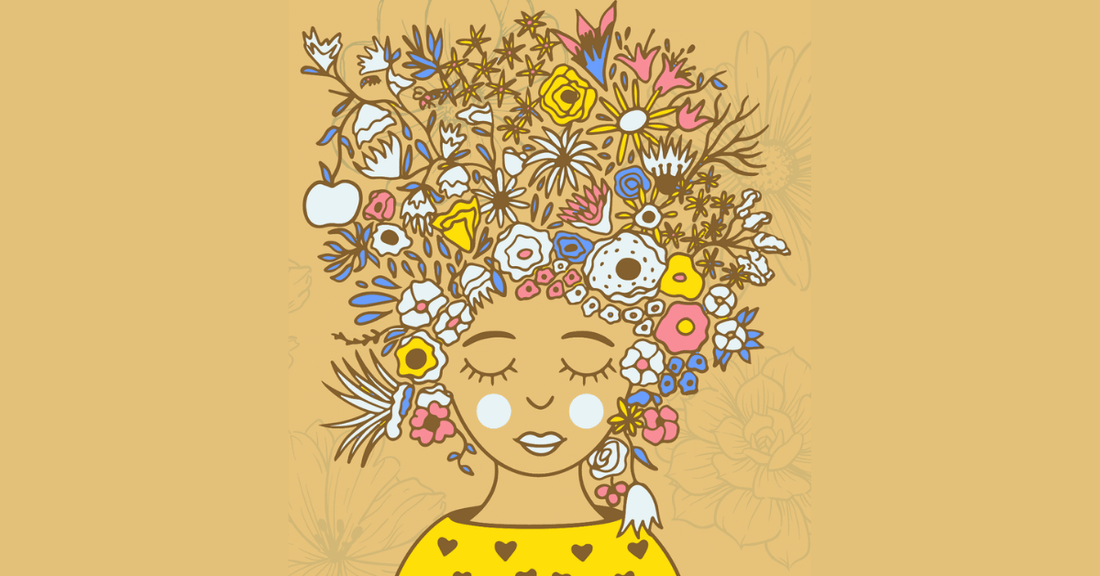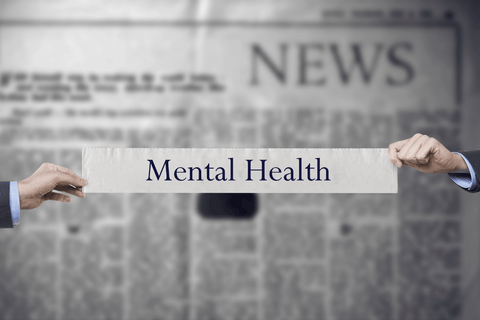
The Effects Of Media On Mental Health: A Guide
Share
Introduction
The relationship between mental health and the media is a complicated one. While some research argues that there are ways in which the media can be beneficial for mental health, other studies show that there are also many negative effects of media on mental health.
This guide will examine many of these effects, while also offering several solutions to combat them.
What is Mental Health?
Mental health is when you feel optimistic about yourself, your life, and your future. It is when you can enjoy life, be productive at work, and have good relationships with others.
The definition of mental health is not universal. It varies in different cultures and among other individuals within a culture. Mental health is more than just the absence of mental illness. It is an overall evaluation of how well a person functions.
The term "mental health" may be used to describe a person's ability to live, work, and interact with others. A mentally healthy person typically has positive relationships with family, friends, co-workers, and society as a whole.
They can function well at home and work. They can deal with problems in healthy ways and have the ability to meet life's challenges.
Mental health is not an on-off thing. Most people are somewhere on the spectrum between very unhealthy behavior and no signs of mental illness.
Mental health is something that varies from day to day or even hour by hour for some people.
The Effects Of Media On Mental Health
Media is everywhere today - on the internet, television, radio, and newspapers - it's hard to avoid! Media has become an essential part of our lives.
It entertains us; informs us, enlightens us, sells products; promotes issues; creates trends; makes people laugh, engages children, tells parents, teaches skills, etc.
However, the media can also have an impact on our mental health. With the increased use of mobile phones, social networking sites (such as Facebook), and video game consoles (X-Box, etc.), there is increasing concern around the effect of these technologies on young people's mental health.
In the UK, the country's chief medical officer is giving parents advice on how to balance potential benefits of screen time with other essential activities for children, including sleep, exercise and face-to-face social interaction (Davies et al, 2019).
Also, in 2017, the Royal Society of Public Health described social media as more addictive than alcohol or substance use. Hence, the addiction is more complex than a simple cause and effect equation. It may be that the idea of social media being more addictive is because it can be taken without restriction and without social stigma attached.
Media can affect our mental health both positively and negatively. Media can increase our knowledge about things happening in the world around us, help us relax, or provide us with entertainment during leisure time.
However, it can also negatively affect how we think or feel about ourselves or others, especially if we overuse it or don't use it wisely.
There's evidence that people can feel depressed when they spend time on Instagram, because comparing themselves with others makes them feel bad. Now Instagram will hide ‘like’ counts to try to reduce the pressure on users.
How to avoid the negative effects of media
1. Set Time Limits While Using Social Media
Perhaps the most effective way for teens to ensure that social media has a positive effect on their lives is by reducing their time on applications.
According to a study published by the Journal of Social and Clinical Psychology, undergraduates who limited their time on Facebook, Instagram, and Snapchat to 10 minutes a day, or a total of 30 minutes on all social networks, are generally more positive and possess better self-image.
Students who restricted their use of social media to 30 minutes a day were less depressed and lonely after three weeks.
Those reported with "higher levels of depression" at the beginning of the period were happier. The increase was significant.
2. Distance yourself from the Distractions
In general, people are not willing to change their use of social media just because they hear that it is terrible for them. People need to understand better what their limits are.
It's probably not feasible for most social media users to quit altogether. However, they can monitor their behavior and see how their use affects them and act on it.
Sperling encourages people to experiment with their behavior by assessing their emotions on a 0-10 scale before browsing social media applications and after browsing for one week.
If you're less satisfied after using it, consider changing how you use your social media sites, such as reducing usage or participating in other fun activities.
3. Be Thankful
You can take social media breaks, and participate in other activities that feel good to you. If ever you feel disheartened by your social media experience, give yourself permission to post selectively and only post things you feel grateful about.
Expressing gratitude helps you realize how much you have to be grateful for.
Expressing gratitude can also help improve your relationships—for example, expressing gratitude to a family member who takes care of you can help strengthen the bond between you.
4. Be aware of your thoughts and actions.
FOMO (Fear of Missing Out) is the feeling that you're not doing what others are. And comparing yourself to others can lead to feelings of disillusionment and dissatisfaction with your life.
Using mindfulness to develop self-compassion and self-acceptance, you can overcome the negative effects of FOMO and have a life that matches your values instead of being distracted by the lives of others.
Try doing meditation or yoga and light some scented candles while doing this. Meditation and the scented candles will help you find some inner peace and accept yourself more.
5. Do other things that you love
Social media is less important than doing something you genuinely love. It is straightforward that if you want to be happy doing social media or anything else, you have to do things you love.
It would be easier to understand this fact if we weren't living in a world where social media dominates communications. But it does. And it has made us increasingly shallow about connecting with others.
When people ask how they can best connect with others on social media, I always answer, "do other things that you love." Social media will connect us with people who are interested in what we are interested in.
That's the way it works. If you are interested in something, you will attract others that share the same interest as yours.
It is hard to connect online because what we are interested in tends to be pretty narrow, mainly our hobbies and jobs. We don't have much interest in other people's hobbies or jobs, which leads to a lack of connection between them and us online.
The amount of time we spend on social media deviates from our interests and makes it narrow because most of what happens is about ourselves and people like ourselves.
To wrap things up!
Different kinds of media, whether it’s a tv, ad, radio, website, social media, displays two types of effect to us, positive and negative.
Media sometimes provides us with happiness and laughter; it sometimes gives us some information, it may be our source of entertainment and past time. But there are adverse effects to us especially shown in children, teenagers, and general users.
As they say, everything that is too much is never good. So let’s stay connected remotely as well as physically.
Let’s enjoy nature, the tangible things, and the genuine relationships in our lives.
We are not saying to quit media, but we’re just advising to use it safely and manageably.



